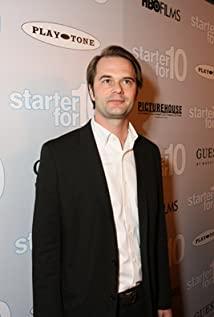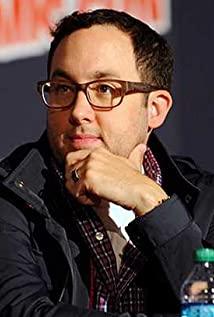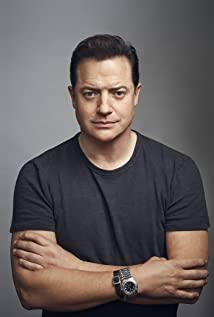- "Don't hope for a miracle, make one"
plot
"Extraordinary Measures" is the first film of CBS Film Company, a subsidiary of CBS Corporation in the United States The film, starring Brendan Fraser and Harrison Ford. The director is Tom Vaughan. The film will be released in North America on January 22, 2010.
The film is based on the reportage novel "The Cure" by Geeta Anand. That book won the 2006 Pulitzer Prize.
Movie, literary and real-life hero John Crowley is a senior executive at a biotechnology company. He and his wife, Aileen, have three children, two sons and a daughter. In 1998, they discovered that both a son and a daughter had a very rare genetic disorder: Pompe disease.
This is a rare disease caused by lesions on the 17th pair of chromosomes, resulting in a lack of an enzyme in the body that cannot decompose glycogen, which can lead to muscle weakness and atrophy, respiratory failure, cardiac hypertrophy and weakness.
The probability of getting this genetic disease is one in 40,000 to 50,000, and their family accounts for two! There were no effective treatments at the time. The two children in the movie and in life, the eldest daughter is 8 years old and the son is 6 years old, both are in wheelchairs. Doctors have judged that the two have lived to the known life limit of people with this genetic disease, and may suffer from respiratory failure at any time. Died of heart problems.
But at this time, John accidentally found a research paper in a medical journal by a university professor Robert Stonehill (Harrison Ford), proposing a new theory for the treatment of the disease. While this is still a hypothesis, for Crowley, he sees hope for two children.
It usually takes several years or even a dozen years to turn a theory into a drug, use it in clinical trials, and finally get FDA (US Food and Drug Administration) approval. But Crowley's kids don't have time to wait, Crowley has to race against time! So while Crowley had a steady job, in order to treat his two children, he made a bold decision: quit his job, raise his own funds, and start a biopharmaceutical company with a professor to The professor's theory was based on an enzyme that could treat Ponziosis...and
when they were halfway through their research, they ran out of money. what to do? They had to sell the company to a larger biotech company. In the end, the company had four candidate trials for Ponzi disease, and after evaluation, only one (but not the professor's one) was decided by the company for clinical use and only in newborn children. It was a business choice made by the company, and Crowley's two children could not be tested. At this time, Crowley, through various means, finally got a hospital to agree to use the new medicine invented by the professor on his child. Crowley was also fired from the company for this reason: because any of the company's new drugs cannot be used on company insiders and their families, which also prevents conflicts of interest.
In the end, the new drug was successful, and the two children gradually recovered! The FDA approved the new drug in 2006.
2006 Pulitzer Prize: Cure
"The Cure: How One Father Quickly Raised $100 Million, Built a Pharma Company, and Saved His Child's Lives" The
Real John Crowley The Real Miracle
John Crowley and Bill Canfield - before the story was rewritten
now John Crowley John Crowley, CEO of
Amicus Therapeutics Biotechnology, and Amicus Therapeutics, founded by New Jersey Governor John Crowley in 2007, is listed on the Nasdaq
John Crowley's career - real-world twists and turns
1. Novazyme, the first company
John Crowley founded to find medicines that save children.
2. In 2001, Genzyme acquired Novazyme for 137.5 million yuan in stock.
Genzyme and Novazyme Pharmaceuticals announced the definitive merger agreement on August 7, 2001. Under the agreement, Novazyme is owned by, and is part of, Genzyme. Genzyme hopes the merger will significantly enhance their leadership in enzyme replacement therapy.
Novazyme has developed a series of new protein engineering technologies, which have greatly enhanced the targeting and absorption efficiency of alternative enzymes in preclinical studies. Genzyme believes that these technologies, when modified, can improve and optimize its products for the treatment of various lysosomal storage disorders. Novazyme's technology also has the potential to be used to develop better monoclonal antibodies and gene therapy.
Novazyme's best product is NZ-1001, an enzyme replacement therapy for Pompe disease, which entered clinical trials in late 2001. This is a highly phosphorylated and moderately glycosylated form of recombinant human α-glucosidase with encouraging preclinical results. Genzyme will continue its efforts to advance NZ-1001 research and will continue to complete a Phase II clinical trial of its self-developed enzyme replacement therapy for Pompa's disease, which Genzyme has developed in collaboration with Pharming Group NV.
Henri A. Termeer, Chairman and CEO of Genzyme, said, "The acquisition of Novazyme is consistent with our mission of developing the best products for patients. Novazyme has developed a promising protein technology platform that complements our This technology will have a profound impact on our development of improved therapies for lysosomal storage disorders."
John F. Crowley, Chairman and Chief Executive Officer of Novazyme, said, "Novazyme and Genzyme share a common vision - to get the best medicines into the hands of patients as quickly as possible. Genzyme's excellent organizational structure, strong resources and the field of genetic diseases A wealth of experience will strongly support and accelerate the development of our technology and products. This merger is not only important for patients, but also provides excellent returns for shareholders, and our mission is even more."
- from www . .prnewswire.com (Christine)
3. Some of Novazyme's previous products:
4. Genzyme's drug Myozyme for the treatment of Pompe disease obtained FDA approval
The US FDA approved the first Pompe drug Myozyme
( US FDA issued; April 28, 2006) The
FDA approved the biologics license application (BLA) of Myozyme (generic name: alglucosidase alfa, rhGAA) on the same day, Myozyme is the first treatment for Pompe disease (Pompe) Drug. Myozyme has been approved as an FDA-designated orphan drug and has been granted priority review. The development of rare disease products to treat rare diseases or conditions affecting fewer than 200,000 people in the United States, the Orphan Drug Act provides the first applicant to receive marketing approval for a designated orphan drug 7 years of market exclusivity.
The FDA approved Myozyme to be administered by intravenous infusion. The safety and efficacy of Myozyme were evaluated at first dose in 39 infants and young children aged 1 month to 3.5 years with Pompe disease in two independent clinical trials.
Manufactured by Genzyme Corporation of Cambridge, Massachusetts. It is estimated that there are approximately 10,000 Pompe disease patients worldwide.
Previously, Myozyme has been designated by the FDA as an orphan drug, and it will enjoy seven years of exclusive marketing rights. Genzyme plans to launch the drug in the U.S. within two weeks. A month ago, the drug was also approved by the European Union.
Genzyme's new drug was selected against four different Pompe disease candidates, and John Crowley's Novazyme's prototype test subjects were eventually dropped.
5. The 2001 Federal Trade Commission investigation into the merger of Genzyme and Novazyme:
… The Commission also investigated the merger of Genzyme and Novazyme in the late 1990s, However, under the influence of the Bush administration in 2001, the Federal Trade Commission (FTC) voted 3 to 1 to end the investigation of Genzyme's acquisition of Novazyme
6. amicus, founded by John Crowley after leaving Genzyme, is now facing difficulties due to obstacles to new drug development:
http://www.amicustherapeutics.com
Several drug development difficulties
Reuters NEW YORK, October 2 (Reuters) - Amicus, a comprehensive biopharmaceutical company Therapeutics Inc tumbled 33.4% to $5.66 in after-hours trading on Friday after the company said its Gaucher disease drug Plicera failed to complete a phase 2 study and expected the The drug will not be available for Phase 3 studies.
In the three years since its establishment, Amicus has had many difficulties in developing new drugs, and the road to FDA approval is still very long. Perhaps, the release of the movie will increase the chances of Amicus being acquired.
Nonetheless, Amicus is one of the few companies developing new drugs for rare genetic diseases, and John Crowley and his team (some have followed for years) deserve all respect for their spirit of doing what they can.
Because he and they did not believe in miracles, but created miracles with their hands.
——"Don't hope for a miracle, make one"
The picture below shows the stock performance of amicus over the past year:
2010-1-23
View more about Extraordinary Measures reviews











